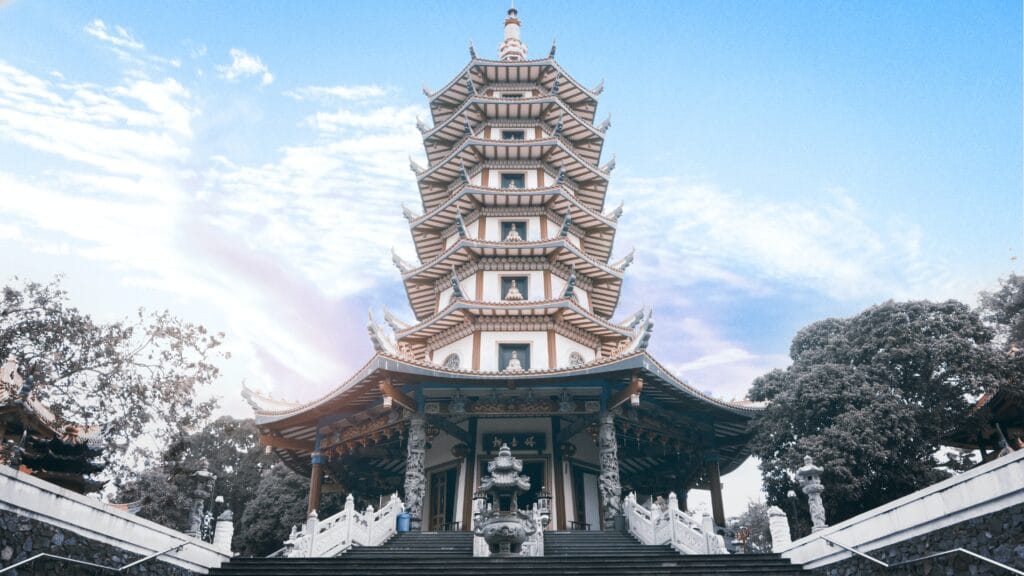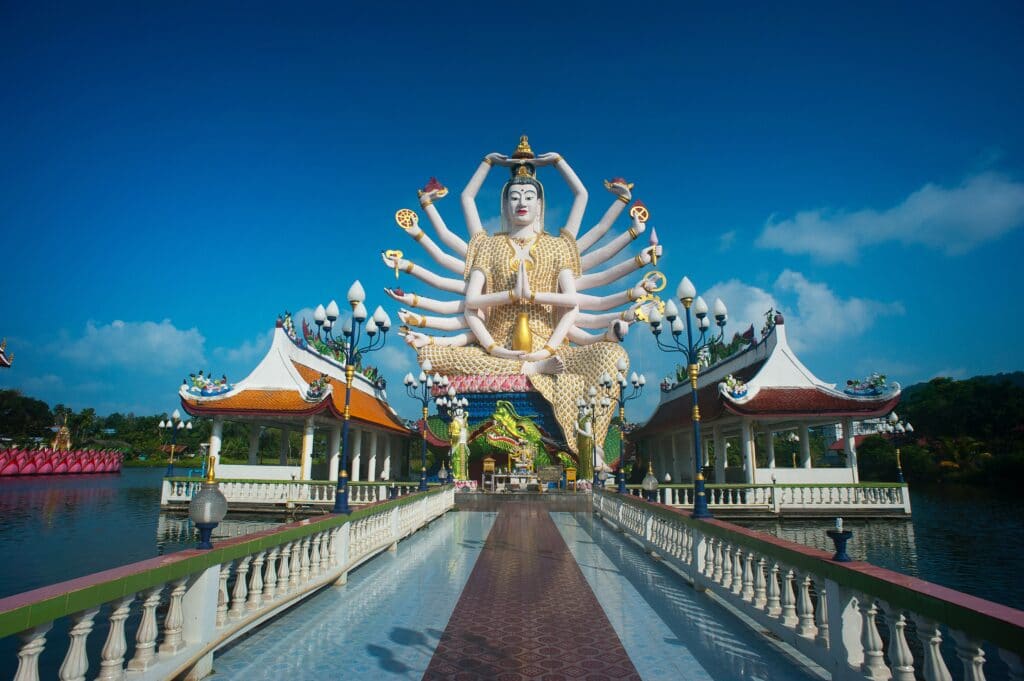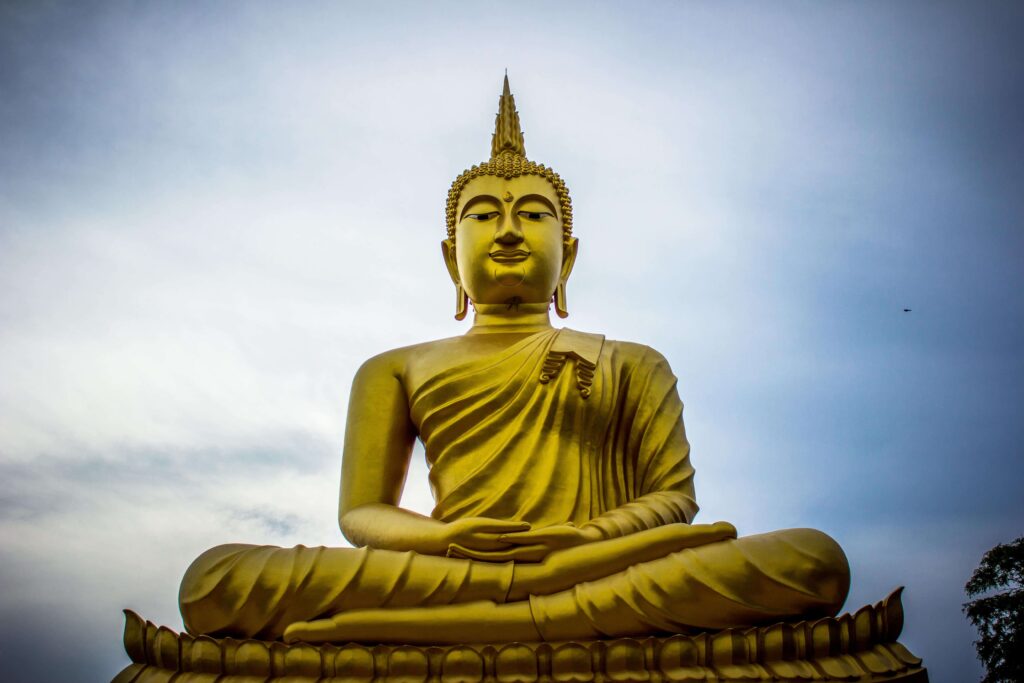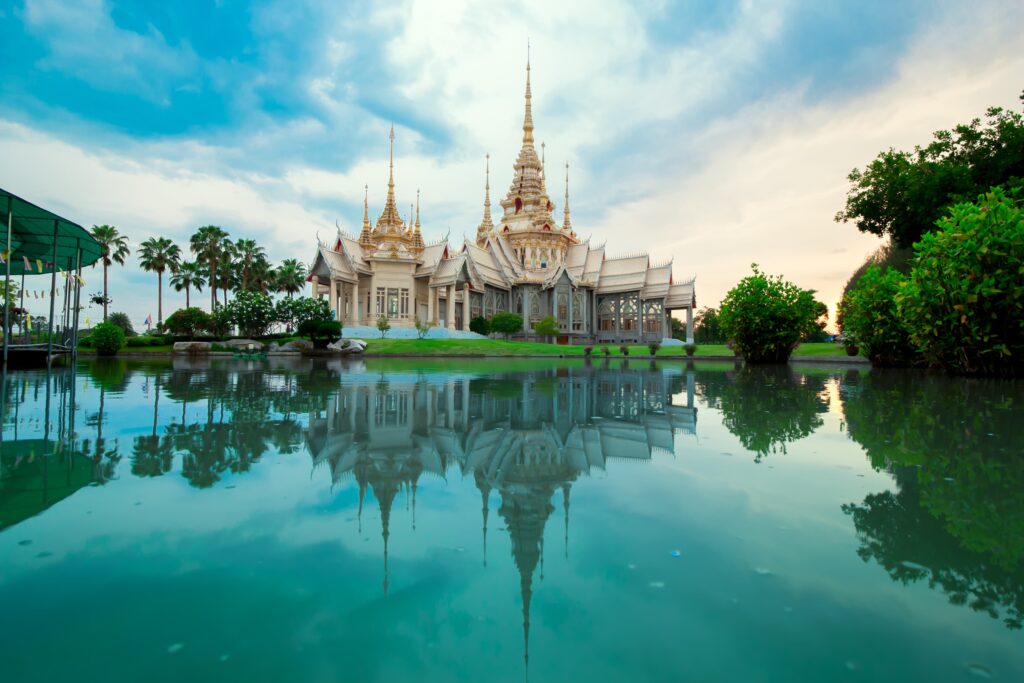Thailand is a beautiful country with many different cultures and customs. Do you want to visit Thailand? Do you know what the do’s and dont’s are for tourists in Thailand? In this blog post, we will cover etiquette in Thailand for visitors from all over the world! Let’s get started!

Table of Contents
Do’s and Dont’s in Thailand
Thailand is a beautiful country with friendly people. The key to having a great experience in Thailand is knowing the do’s and dont’s of the culture. These are some of the most important things you should know when visiting Thailand, or if you live here.
The people in Thailand are very kind and will not be offended if you make a mistake. However, it is important to respect the culture and customs of Thailand as they are different from many other cultures.
When visiting Thailand you will want to avoid doing things that might offend Thai people. This will earn respect from your hosts and ensure you have a great time when traveling here!
In particular, you will want to show respect for Buddhism and the Thai Royal Family. You should always behave respectfully to monks or images of royalty when you are in public places, inside temples, or when you are with someone who is dressed in traditional or formal clothing.

Thailand Do’s
Thailand is a beautiful country with many wonderful things to see. However, it also has some peculiarities that visitors may not be aware of, which can cause misunderstandings and even embarrassment if they are ignored.
- Do respect all Buddha images. Buddha images are held sacred and sacrilegious acts are punishable by imprisonment even if committed by foreign visitors. It is considered very bad form to step on them or point the soles of your feet at one.
- Do dress properly when visiting a temple. It is disrespectful to wear revealing clothing. It is advisable to cover your shoulders and knees.
- Do use your right hand for eating, shaking hands, and giving or receiving money. The left hand is for personal hygiene only.
- Do be aware that some Thai people may not want their picture taken as this is considered to be very disrespectful. If you are taking a picture of an older person or monk, always ask permission first and show respect by bowing when you take the photo.
- Do smile at people you meet as this is considered a form of greeting. It is not considered impolite to stare, but it can be interpreted as an invitation to a fight.
- Do learn and follow proper Thai etiquette rules when attending a festival. It is very impolite and disrespectful to get drunk, sing loudly or dress inappropriately.
- Do refrain from talking about the royal family in Thailand unless you know a person well. The royal family is revered and considered sacred by Thais so you don’t want to offend someone with an off-hand comment.
- Do use only your right hand for giving or receiving money, as Thais consider the left hand dirty. The feet are regarded as dirty too, and should not be pointed at other people.
- Do remember that it is disrespectful to touch anyone on the head, as you would be touching their soul. It is the highest part of the body, so touching it is very offensive.
- Do hold your hands together in a prayer-like manner as you walk past Thai people seated on the sidewalks.
- Do remove your shoes when entering a private Thai residence or place of business. Some restaurants, bars, and shops also ask you to remove your shoes. It is considered polite to do so.
- Do avert your eyes when passing by monks in public places, and never touch them or stand with the soles of your feet pointing at them. This is very disrespectful and can cause a lot of trouble for you!
- Do say “sawasdee” when greeting people, i.e., locals and monks. It is Thailand’s version of “hello.” It is also common to say “sawasdee ka” which means “good morning” or “good afternoon.”
- Do say “kahp” or “khrap” when saying goodbye to people, i.e., locals and monks. It is not polite to say goodbye without saying anything. It is also common to say “kahp khun ka” which means “thank you.”
- Do keep your voice low and speak politely in public. Loud talkers are considered boorish and inconsiderate.
- Do observe the strict code of etiquette when attending a royal event or funeral, or you may be fined or even sent to prison.
- Do eat with a spoon and fork when eating Thai food in Thailand, i.e., not your fingers. It is also considered rude to eat while standing.
- Do say “Mai Pen Rai” when you don’t understand something and wish to be excused. It is an expression that means “never mind” or it is no problem.
- Do remove your shoes before entering a temple, somebody’s house, and even some shops. It is a sign of respect.
- Do treat monks with the highest respect. It is a serious offense to walk in front of a monk or make him/her step aside. Do not touch a monk’s belongings without his permission and do not step on a monk’s shadow. It is not appropriate to wear shorts or sleeveless clothing when speaking with monks.
- Do call your hotel or resort in advance to make arrangements for your pick-up. It is considered impolite and even illegal to stop a taxi that is already carrying passengers.
- Do try to learn a few basic phrases in Thai, like ‘hello’ and ‘thank you’. It is always appreciated when you attempt to speak the local language.

Thailand Dont’s
Tourists or locals visiting Thailand, you are bound to run into some cultural differences. To help you avoid any embarrassing moments, here are some of the dont’s in Thailand to keep you right.
- Don’t point your feet at someone, put them on a desk or chair, or raise them higher than their head. It’s considered extremely impolite in Thailand to expose one’s feet, so keep them hidden! Avoid displaying your feet towards Buddhas in and around temples as well as other people – including children – since it might cause discomfort.
- Never touch someone’s head or hair since this is seen as the most sacred portion of the body. The head is thought to be the most honorable component of a person’s body, so stroking it may be perceived as degrading.
- Don’t point at someone with your foot, arm, or hand – this is a sign of disrespect and can be insulting towards those around you. Instead, use an open palm to beckon others from far away instead of pointing.
- Don’t cross your legs or arms as it shows anger, impatience, disrespect, or arrogance depending on how you sit. Be sure to also keep both feet flat on the floor rather than just one which could come across as cocky!
- Don’t point or beckon someone with your index finger instead use an open palm to gesture towards others from a further distance away if you need something! This is considered more respectful in Thailand.
- Don’t touch anyone with wet hands if you are shaking hands – this is considered quite impolite in Thailand and could be insulting! Wash your hands before the handshake, wait for them to dry off then shake their hand firmly but not too hard.
- If you are visiting a temple, remember to dress conservatively but not too modestly – shoulders and knees should be covered with loose fitting clothes (skirts/dresses for women).
- Don’t show the soles of your feet, point, or sit with your legs crossed as this is considered a sign of disrespect.
- When taking photos, be sure to ask someone’s permission first! It can be insulting if you take their photo without asking and they may not want to have it taken.
- Don’t put your hands in the pockets of someone else, touching something that belongs to them without asking first and giving things to anyone directly – instead present it with both hands. These are considered very rude gestures!
- Don’t take Budha images with you when you leave Thailand. It’s disrespectful to the religion and illegal without permission. This can result in a fine and jail time.
- Don’t shout or lose your temper in public – in Thai culture, keeping your cool is considered a sign of dignity. It is also very disrespectful to make loud noises in public.

Visiting Thailand Temples
Thailand has over 41,000 temples, according to the official count. There are presently over 34,000 temples in use! Some of them are ancient and perplexing, while others are distinctive and include Batman on the walls. They’re all holy places that should not be violated by obnoxious visitors.
Temples are not the place for obnoxious tourists to disrupt this good thing with their behavior. 94% of Thailand’s population practices Theravada Buddhism which means that visitors should know how to behave around these structures that contain something that makes them stand out from other temples. For example Wat Traimit, the home of a massive golden Buddha, and Wat Pho which contains one of Thailand’s largest reclining Buddhas.
What to do near Near Buddha Images
Visiting Thailand’s temples can be a lot of fun, but it is important to remember that they are sacred spaces for Thai people. When you visit these structures that contain something that makes them stand out from other temples, follow these rules below:
- Remove your shoes before entering the viharn unless already directed to leave them outside.
- Don’t step or stand on the door threshold going inside. it is considered very disrespectful.
- Enter the temple and hall clockwise while keeping your hands in añjali or prayer position at your chest level. You can bring along flowers, incense sticks, and/or candles which should be handed over to one of the monks (never leave them unattended). They may not accept money but it is appropriate to leave an offering (or donation) in the temple’s donation box.
- Sit quietly while inside and refrain from talking on cell phones or cameras, which are considered disrespectful to monks who use these spaces for meditation. It is also good manners to sit cross legged with your feet tucked underneath you so that they don’t point at the Buddha statue.
- Respect the monks by dressing modestly, especially when you are visiting a temple that is home to some of Thailand’s holiest relics or Buddha images. Women should cover their shoulders and knees but shorts are okay as long as they reach mid-thigh (you may see women wearing sarongs around their waist). Men need to make sure their knees are covered, but it’s is okay to wear shorts.
- Be quiet when you go near the Buddha images – don’t talk loudly or take pictures with flash as this bothers people praying and can be disrespectful.
- Don’t get in the way of local people who are actually there to worship. Try not to turn your back while near the Buddha statues; back away instead and stay close enough so as not to disturb others’ prayers (e.g., sitting on a raised platform). If monks come into the hall, stand up to show your respect.
- Don’t touch the statues or any other object in the temple without being invited to do so, even if you are just trying to get around them. Also avoid touching anyone’s head, since it is considered very disrespectful with Thai people and Buddhists alike. Do not pose for pictures while sitting on a raised platform in front of a Buddha statue.
- Do not step in front of someone praying when taking pictures or videos, and do not take photos during an important event such as a ceremony or puja (religious ritual) without asking permission first if it is allowed.
- Don’t bring food and drinks to the temple.
- Walk around sacred images in a clockwise direction, so as to follow the movement of the sun. If you have a question about something or need help with anything, do not hesitate in asking one of your hosts for assistance since they are there to serve and guide you through this process.
- Sit with legs underneath you when sitting in sacred temples. It is disrespectful to sit in a way that shows the soles of your feet towards Buddha images.
- Do not pose near statues with monks in the background, since they are “in training” and cannot be photographed for this reason.
- When leaving don’t raise yourself higher than the statues of Buddha images. Take your time and leave quietly so as not to disturb others in the temple who might still be praying or meditating.
- Enjoy yourself, but also take these simple precautions into consideration when visiting Thailand’s sacred temples.

Photos Inside Temples
Most people don’t know that taking photos inside temples is frowned upon in Japan. However, this doesn’t apply to Thailand. Here, you can take photos of Buddha images or the worship area unless there is a sign indicating not to do so. But if they are busy or worshipping, be polite and ask first before snapping any pics.
Be aware that some monks may be happy for you to take their picture but others will likely refuse your request even if they are not busy or worshipping. It’s important for travelers visiting Thailand to know about these basic etiquette guidelines when photographing Thailand’s beautiful sites!
Conclusion
Thailand is a beautiful country with many wonderful experiences to offer, but it can also be overwhelming. It’s important that you do your research before visiting Thailand and get familiar with the customs of this culture. You should know what’s appropriate in terms of greetings, clothing, language, gestures (both body and facial), personal space boundaries, etc. so that you don’t offend anyone unintentionally while traveling through these wondrous lands!
Check out cheapo air flights for the lowest prices found anywhere and make huge savings on air travel all year round. Twtwebstar brings you a range of cool places to travel throughout the site. Why not discover Maine, and find out the best places to go in Maine, and activities to try for the ultimate vacation.












